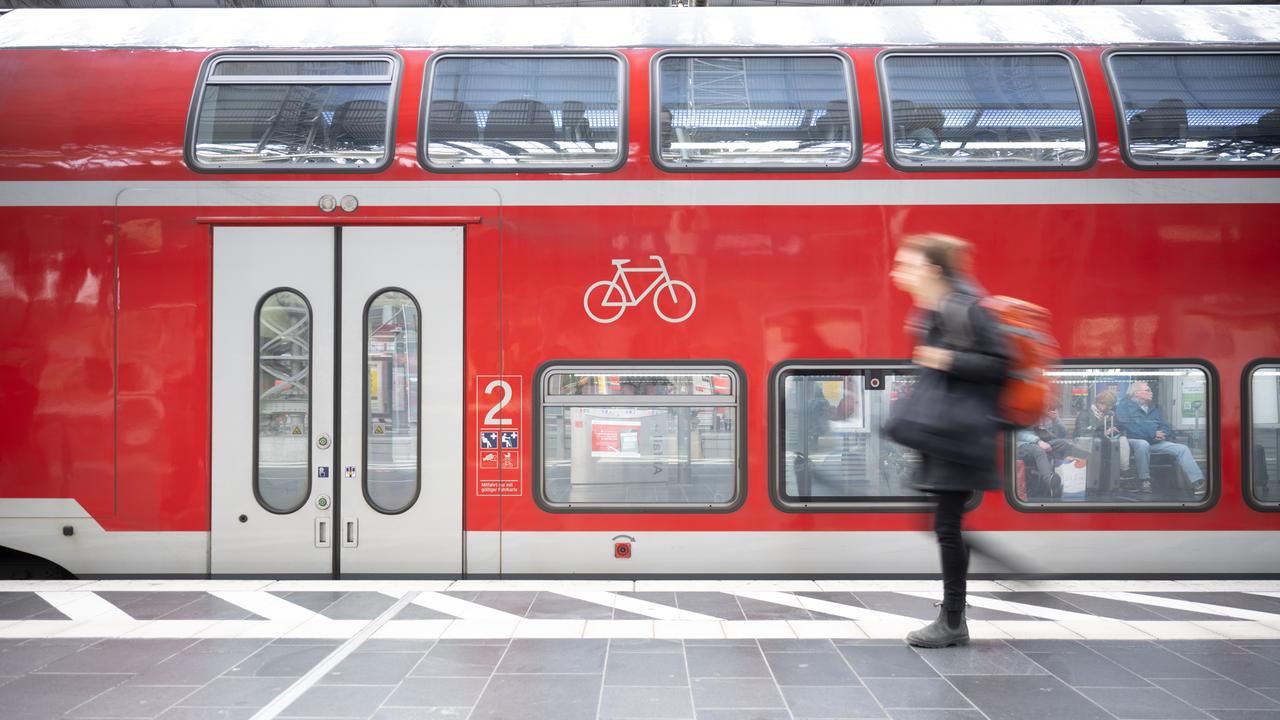The Deutschlandticket has brought the railway significantly more passengers on regional services. In June, there was an increase of 25 per cent, according to DB-Regio boss Evelyn Palla.
Following the introduction of the Deutschlandticket, the number of passengers on Deutsche Bahn’s local trains has risen by around a quarter, according to DB-Regio boss Evelyn Palla.
In June, the number of passengers was 25 per cent higher than in April, Palla told the “Redaktionsnetzwerk Deutschland” (RND). The Deutschlandticket is “already a great success”. Since 1 May, travellers have been able to use public transport throughout Germany for 49 euros a month.
Politicians and railways report hundreds of thousands of new customers since the introduction of the Deutschlandticket.
Longer distances with regional trains
Passengers on DB regional trains had also travelled “significantly longer distances”, especially the excursion routes towards the sea and mountains were very popular during the holiday season. In some regions, “people travel as much as in the 9-euro summer”, Palla told RND with reference to the discounted monthly ticket offered last year from June to August.
The monthly travel pass, which is valid throughout Germany, is “simple, inexpensive, ecologically sensible and digital”, Palla continued.
She also appealed to the federal and state governments to keep the monthly price of 49 euros stable in the coming year. She added that DB Regio would like the price to “remain affordable” and give “many people access to daily mobility”. Source: AFP Translated with www.DeepL.com/Translator (free version)



Tja. Network was overloaded before, so now it starts breaking. Luckily part of the problem are track works aimed at increasing capacity.
But you are right, there is lots to be done. Maybe the politicians will see the surge of travellers and finally take network extensions and increased fault resilliency seroious now.